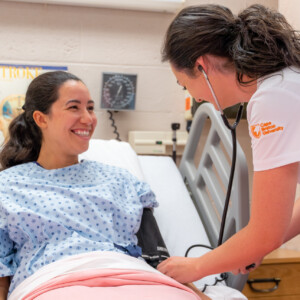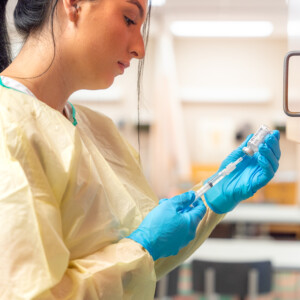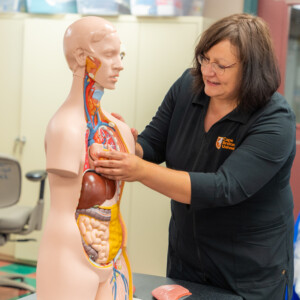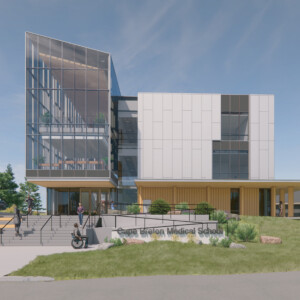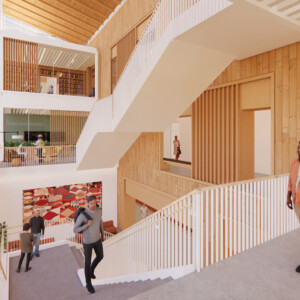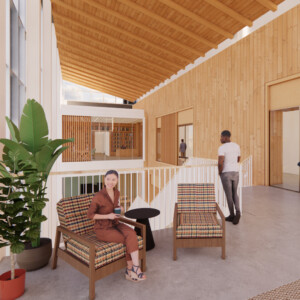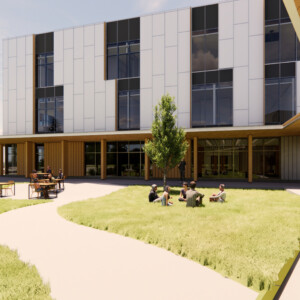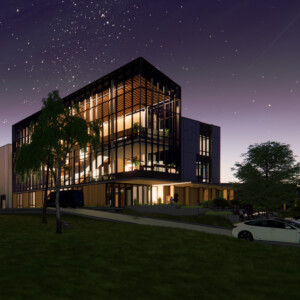Applicants must be a Canadian citizen or permanent resident. Eligibility for admission to the CBMC is limited to Nova Scotia applicants and will prioritize qualified Nova Scotia applicants with lived experience in rural Nova Scotia communities.
Cape Breton Medical Campus
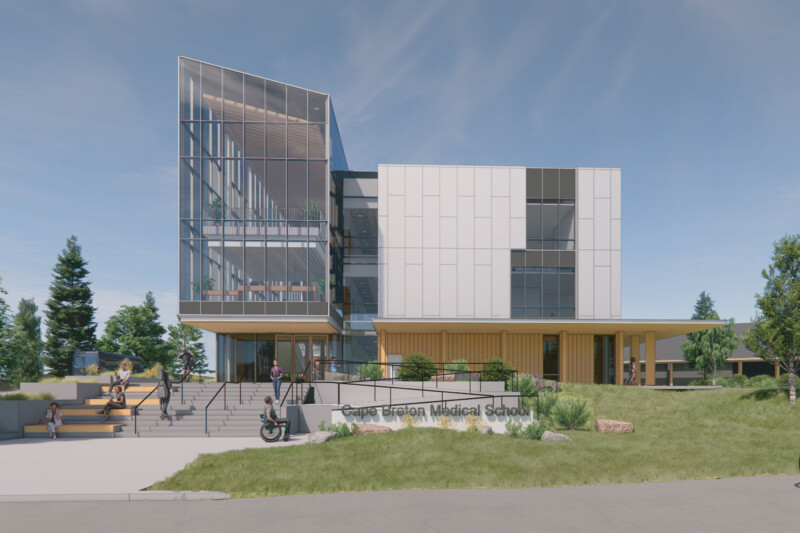
Cape Breton University is proud to partner with Dalhousie University to bring the Cape Breton Medical Campus to Cape Breton Island in August of 2025.
This strategic partnership will ensure more Nova Scotians have the opportunity to receive an excellent medical education in their home province and will assist with the recruitment and retention of physicians to the Cape Breton region, and to rural Nova Scotia. With a focus on family medicine and rural medicine, the Cape Breton Medical Campus will provide training that will greatly benefit the health needs of many communities of Nova Scotians, including indigenous and African Nova Scotian communities.
Applications for the first cohort of the Cape Breton Medical Campus are now open!
FAQs: Students
Have additional questions? Contact us at cbmc@cbu.ca
Applications for the Cape Breton Medical Campus class of 2029 (beginning September 2025) will open in June 2024.
You can apply through DAL’s website: https://medicine.dal.ca/departments/core-units/admissions/education-equity/rural-applicant-pathway.html
Your degree will come from the Dalhousie University Faculty of Medicine.
At the Cape Breton Medical Campus, medical education will be delivered in the new medical sciences building on the Cape Breton University campus.
The current NSCC Marconi campus will be repurposed to house a large collaborative clinic that will serve the primary care needs of the general public, while also providing new space for clinical training of medical students, and eventually, residents. The Cape Breton Regional Hospital will continue to be utilized as a teaching hospital, as will clinics and hospitals throughout Cape Breton and rural Nova Scotia.
There will be a separate admissions stream for the Cape Breton Medical Campus. Students will receive the bulk of their training in Cape Breton and rural Nova Scotia. Admissions will be prioritized for Indigenous and African Nova Scotian students, and students from Cape Breton and rural Nova Scotia. The initial class will see up to 30 students in August 2025 to make up the first cohort.
The current Dalhousie University Faculty of Medicine curriculum will be delivered at the Cape Breton Medical Campus. For the first two years, students will be receiving the same lectures as classmates in Halifax or the Saint John, New Brunswick campus. In later years, there is more learning off campus, however, we are still following the distributed medical education model developed by Dalhousie University.
There is no question that housing is a national issue and one that affects us here in Cape Breton. CBU recently announced a new apartment-style residence that will be ready for early 2025, and continues to advocate provincially and nationally for more affordable housing options for students.
With the new campus, additional residency positions will be aligned with the number of undergraduate medical seats, with positions mainly in family medicine. The resident positions will be based in Cape Breton and rural Nova Scotia.
The longitudinal integrated clerkship (LIC) is a model for a third-year clerkship in which the core clerkship discipline units are integrated into a year-long program based on patient-centered care and continuity of learning, learning environment, supervision and assessment, and patient experiences. New LIC placements will be established for students at the Cape Breton Medical Campus.
We already have a number of individuals who have indicated their interest in serving as preceptors. In collaboration with Dalhousie, CBU has hired a consultant to canvass physicians across the province to ascertain what is needed to take on students, whether that’s administrative support, physical space or housing. With that information in hand, we will address any identified issues.
Yes. The Cape Breton Medical Campus prioritizes engagement with physicians to ensure there will be the appropriate number of highly-skilled, trained educators.
The Rural Applicant Pathway is the admissions entry into the Cape Breton Medical Campus. In addition to being a Canadian citizen or permanent resident of Canada, applicants to CBMC must have lived in rural Nova Scotia for five or more consecutive years including high school and excluding post-secondary education.
For the purposes of this application, rural Nova Scotia includes any community outside of the Halifax Regional Municipality, as well as any community within the Halifax Regional Municipality if the postal code has a zero in the second position (ex: B0J1A2) as they have been designated as rural.
By accepting an offer, CBMC students agree to a 5-year return of service agreement to practice medicine in a rural Nova Scotia community and a commitment to Family Medicine, or another area of generalist medicine needed in rural Nova Scotia as determined by the Provincial Government.
Yes, completion of the MCAT is an admissions requirement; however, there are no MCAT thresholds (minimum scores) for CBMC. You must have an MCAT score completed in the past 5 years to be eligible.
cbmc@cbu.ca
FAQs: General
Have additional questions? Contact us at cbmc@cbu.ca
Cape Breton has a long history of medical education and has had a family medicine residency program since 2005. There are several examples across the country where educating and training physicians in rural areas has resulted in improved physician recruitment in rural areas, including Northern Ontario, New Brunswick and Newfoundland.
Part of the University’s Strategic Plan includes a commitment for CBU to bolster the overall health and development of Cape Breton while recognizing the needs in other areas. The plan also includes a commitment to champion the Island’s prosperity, and this initiative will have a significant impact both socially and economically. After all, healthy communities are thriving communities.
A medical campus is a distributed medical education site of an established medical school. The Cape Breton Medical Campus is one of three sites of Dalhousie’s University Faculty of Medicine, with accreditation as a single medical school. The curriculum will be shared among the campuses, but each one will reflect its unique location, demographics and culture.

